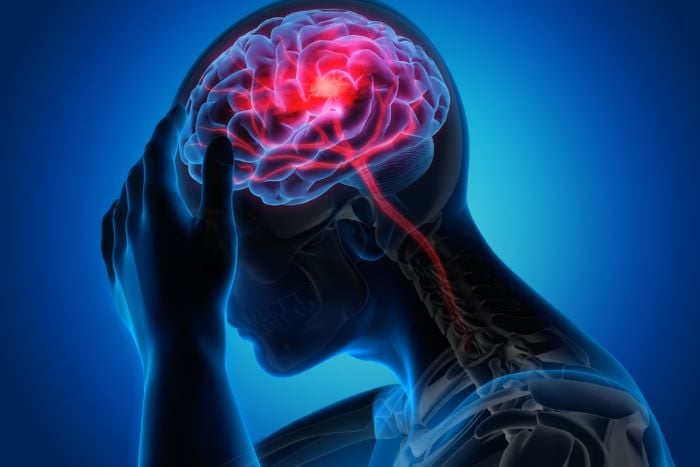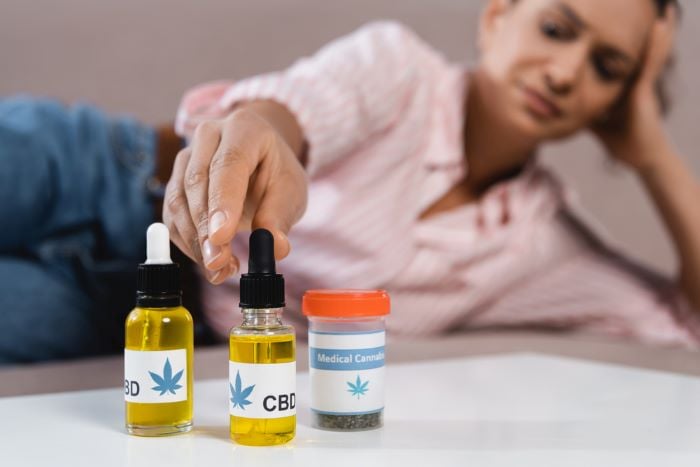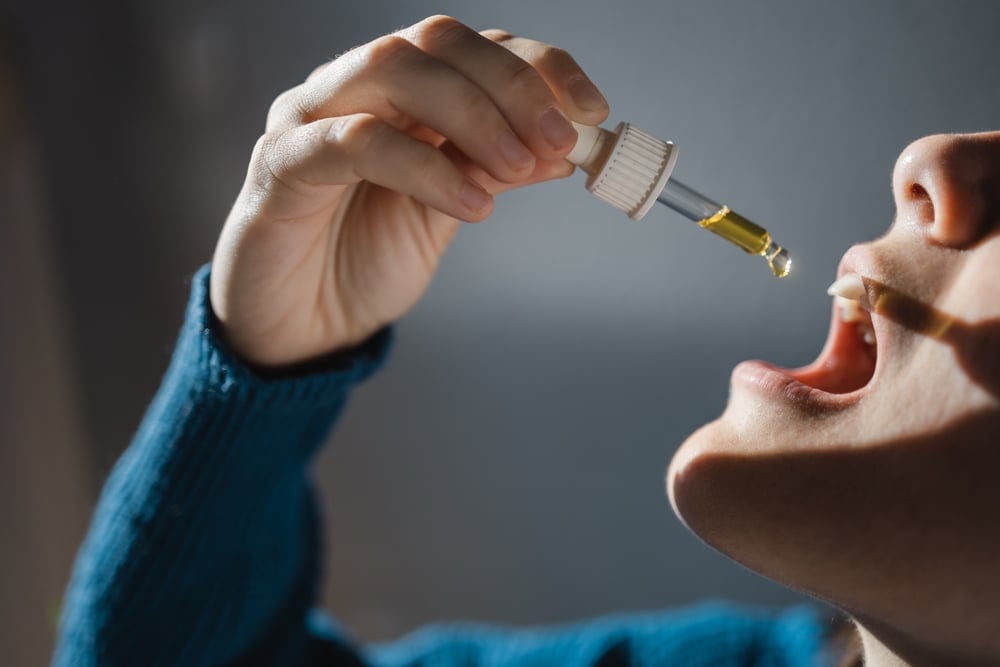Marijuana, Headaches and Migraines
By CLOVR Cannabis
June 15 2022
Many grateful people are encountering medical marijuana for the first time. It has already been used effectively to treat many different health problems. Relief for conditions like anxiety, pain, nausea and low appetite has made an enormous difference in quality of life. But can medical marijuana be used to treat headaches? What about migraines?

Around 37 million Americans suffer from migraines and other severe headaches. Anyone who has ever had a migraine understands the severity — terrible pain, dizziness, fatigue, nausea, vomiting and light sensitivity are all common. Migraines can also be accompanied by sensory disturbances, such as blind spots.

The impact of migraines on your life can’t be overstated. The pain can be unbearable, and the triggers mysterious. Noises, scents or bright lights can bring one on. Doctors have prescribed strong medications to treat migraines that aren’t entirely successful at addressing the pain. They can bring an abundance of unpleasant side effects. Additionally, some of the most potent pain relievers can cause addiction issues.
A recent study showed that cannabis can reduce the severity of migraines and headaches by 50%.
Another small study found that over 85% of patients reported a reduction of headache pain after cannabis use. In addition, over 50% of respondents reported fewer headaches, and over 35% said their sleep had improved.
Half of the opioid users who participated in the study were able to reduce their use of opioid medication.
Medical marijuana can help prevent headaches and migraines or treat them once they’ve started.
Clinical trials are needed to document the efficacy of using medical marijuana to help prevent migraines and other severe headaches. Therefore, there is a great need to gather more data, to help patients decide on the best type of medical marijuana to address their symptoms, ideal delivery methods and best doses.

Eventually, many will use medical marijuana to relax muscles and reduce stress to help prevent migraines. And once a migraine does hit, medical marijuana can also help reduce pain and nausea.
There’s a lot of potentially good news, but prospective patients also need to ask if medical marijuana can cause headaches. Everyone’s physiology is different, and your responses to cannabis will be unique to you. Your health, tolerance levels and even genetics can play a part in how you’ll react to medical marijuana.
Trial and error are truly the best ways to discover the effects of medical marijuana products for you. It could take some time to find whether different methods of ingestion make a difference or if one strain might be more effective for you than another.

Some people do report that the use of medical marijuana exacerbates headaches. If that’s the case for you, discontinue the use of the product immediately and consult with your doctor to reassess your best treatment options. Staying hydrated when ingesting medical marijuana will help soothe headaches and prevent new ones from starting.
It’s always a good idea to talk to your marijuana doctor about your headaches and get their recommendations. A budtender at your local dispensary could also have some good ideas.
The best advice is to start low and go slow with small amounts of medical marijuana – go low and slow (one of our favorite mantras you will hear many times!). Some patients keep a journal to help them remember and understand what has helped the most.
Observe how you’re feeling, and if you can, take notes about how long it takes to feel any effects. Write down the date, time, product, and specific doses. While inhalation has the quickest effect and might be the most obvious choice for someone in severe pain, most doctors recommend small doses of edibles or tinctures used sublingually.

There isn’t a lot of clinical research to rely upon (as with conventional pharmaceuticals), but no one knows your body as you do.
Also, keep in mind that anecdotal evidence is valid. It could be that there’s someone in the same boat, and maybe they’ve been there longer and can give good advice for navigating the waves. Some patients swear by vaporizing medical marijuana. Others favor small doses of concentrates. There are so many options that it will take some time to find what’s best for you.
Scientific research has shown that cannabis can reduce inflammation of the dura mater tissue that covers the brain – meaning it might be a neuroprotectant. This type of inflammation can contribute to migraines.
Research on animals has also showed that cannabinoids (components of cannabis) may act as antioxidants. Thus, in case of extreme events such as a stroke, seizures, or a lack of oxygen, cannabinoids can potentially limit neurological damage to the brain.
For those who endure headaches and migraines regularly, it can be easy to feel hopeless. However, with new and growing options for treatment with medical marijuana, there is renewed hope. It could be there is already a product you’ve never tried that’s just what you’ve been looking for.

And now that more research is underway, doctors will soon have never-before-seen treatments that could change your life for the better.